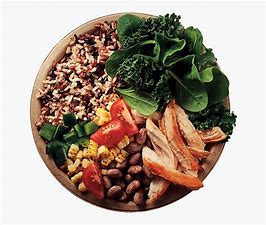Why Am I Always Hungry? By Pierre Mouchette | Bits-n-Pieces Several issues can cause hunger:
Diabetes Your body turns the sugar in food into a fuel called glucose. But if you have diabetes, glucose cannot reach the cells. Your body urinates it out instead and signals you to eat more. In addition to a spike in your appetite, symptoms of diabetes may include:
Low Blood Sugar Hypoglycemia is what you have when the glucose in your body drops to extreme levels. It is a common concern for people with diabetes, but other health problems can cause it, too. It can include hepatitis, kidney disorders, neuroendocrine tumors in your pancreas (insulinomas), and problems with your adrenal or pituitary glands. In severe cases, people with hypoglycemia may seem drunk. They may slur their words and have trouble walking. Other symptoms can include:
Lack of Sleep Not getting enough rest can affect the hormones in your body that control hunger. Sleep-deprived people have an enormous appetite and find it hard to feel full. You are also more likely to crave high-fat, high-calorie foods when tired. Other effects of sleep deprivation include:
Stress When you are anxious or tense, your body releases a hormone called cortisol. This amps up your feeling of hunger. Many people under stress crave foods high in sugar, fat, or both. It may be your body's attempt to "shut off" the part of your brain that causes you to worry. Other symptoms include:
Diet Not all foods fill you up the same way. The ones that curb hunger best are high in protein, like lean meats, fish, or dairy products, or high in fiber. Good sources of fiber are fruits, vegetables, whole grains, and beans. Healthy fats like those found in nuts, fish, and sunflower oil can lower your cholesterol levels. They are critical to a balanced diet and can help you feel satisfied after eating. Pastries, white bread, many packaged meals, and fast foods lack these nutrients but are high in fat and unhealthy carbs. If you eat these, you could find yourself hungry again soon after a meal. You will eat more than you should. You might feel fuller after a meal if you take more time to chew and enjoy your food rather than devouring it. Medication Some drugs can make you want to eat more than usual. Antihistamines, which treat allergies, are known for this, as are antidepressants called SSRIs, steroids, some diabetes medicines, and antipsychotic drugs. If you have gained weight since you started medication, the medicine could be making you feel hungry. Talk to your doctor to find out what other drugs might work for you. Pregnancy Many moms-to-be notice a considerable leap in appetite. It is your body's way of ensuring the baby gets enough nutrients to grow. Most women gain between 4 and 6 pounds during the first three months (first trimester) and then 1 pound a week during the second and third. Thyroid Problems The thyroid is a butterfly-shaped gland in your neck. It makes hormones that control the rate at which every organ in your body works. If your thyroid is working too hard, you could have hyperthyroidism. Besides an enlarged thyroid gland, other signs of the problem are:
Diet Soda Many people drink sugar-free soda to cut back on calories or lose weight. But the fake sugar in these drinks tells your brain to expect calories it can use for fuel. When your body does not get any, it turns on your "hunger switch" and tells you to get calories from food instead. If diet soda is making you hungry, you may also notice:
Dehydration Are you hungry or just thirsty? You cannot always tell the difference in the signals you get from your body. Other signs of dehydration include:
Comments are closed.
|
Archives
May 2024
|
